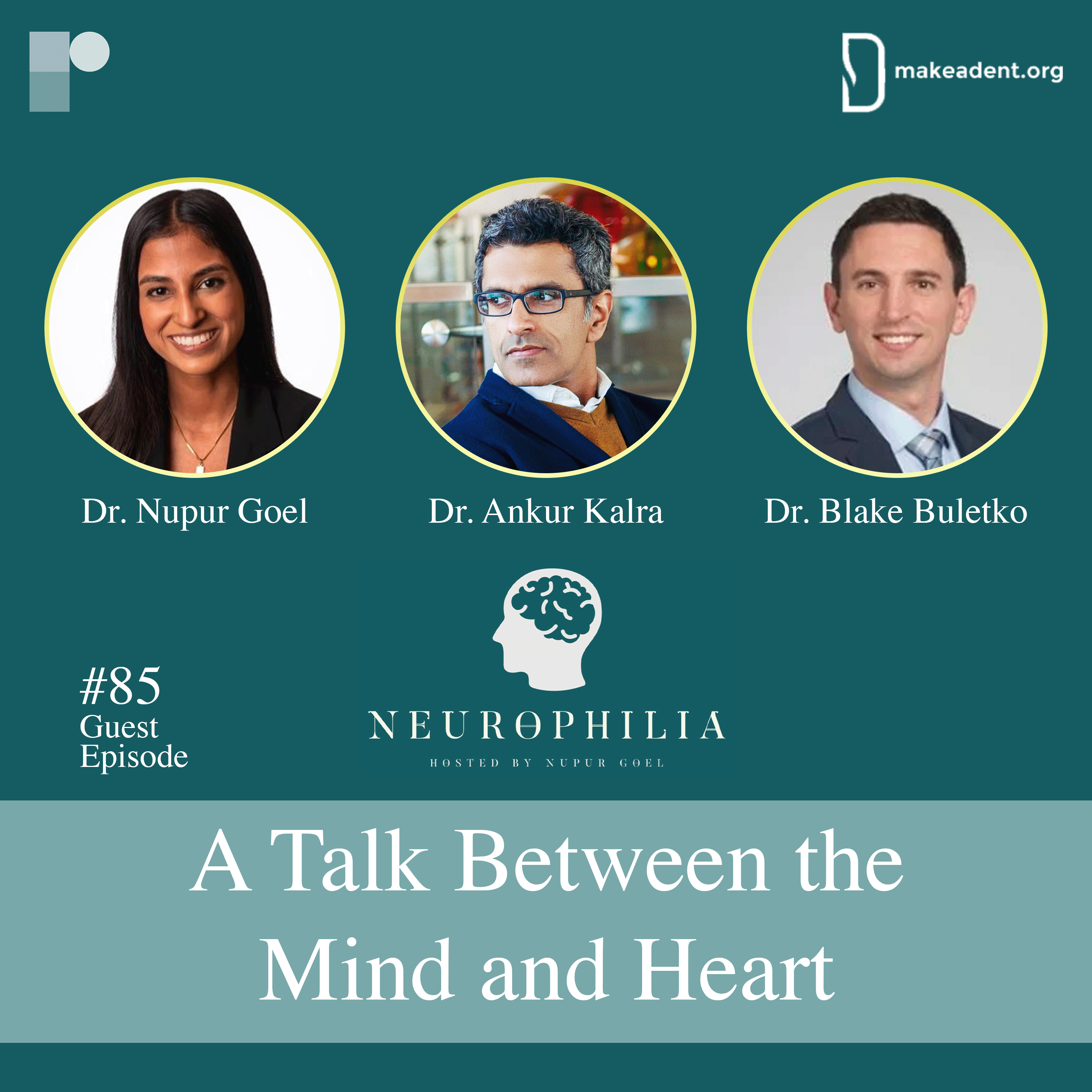
Parallax features a guest episode from the new podcast Neurophilia by Nupur Goel.
Do you think and act with your mind or heart? How about both?
Neurocardiology refers to the intersection between the fields of neurology and cardiology. The mind and heart are deeply interconnected in terms of anatomy, physiology, and various pathologic states.
This episode features a vascular neurologist and an interventional cardiologist who will discuss the relationship between their two fields of medicine.
Dr. Blake Buletko is a vascular neurologist at the Cleveland Clinic. He completed his residency and fellowship training at the Cleveland Clinic and was the former medical director of their mobile stroke program. In addition to his clinical responsibilities, Dr. Buletko serves as an Assistant Professor at the Cleveland Clinic Lerner College of Medicine of Case Western Reserve University and is the current Program Director of the Adult Neurology Residency program for the Cleveland Clinic.
Dr. Ankur Kalra is an interventional cardiologist, and founder of the non-profit startup, makeadent.org. He is director of Barry J. Maron Hypertrophic Cardiomyopathy Center in New Delhi, India. He is also the host of the cardiology podcast show, Parallax. He has presented late-breaking science at national and international scientific cardiovascular meetings, and has published over 250 scientific manuscripts in various peer-reviewed journals. His past appointments include interventional cardiologist, associate professor, and medical director of clinical research for regional cardiovascular medicine at the Cleveland Clinic.
Check out the Neurophilia podcast by Dr Nupur Goel: podcasts.apple.com/gb/podcast/neur…ia/id1654775116




Tune in to discover the strategies that Dr. Kalra and Dr. Alasnag are currently employing and gain insights into how these data will shape their future decision-making in the catheterization laboratory. Don't miss this informative discussion at the forefront of interventional cardiology.

As we adapt to the changes brought about by the pandemic, Dr Singh outlines the necessary steps to foster a reality in which we can utilize these technologies to create more time for human connection.

Dr Owens is Medical Director of the Center for Inherited Cardiac Disease and Associate Professor of Medicine at the Hospital of the University of Pennsylvania.
This series is supported by an unrestricted educational grant from Bristol Myers Squibb. Please see www.camzyosrems.com for important safety information.
This content is intended for US-based physicians.
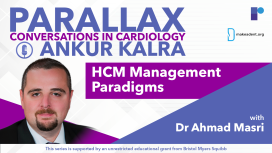
This series is supported by an unrestricted educational grant from Bristol Myers Squibb. Please see www.camzyosrems.com for important safety information.
This content is intended for US-based physicians.
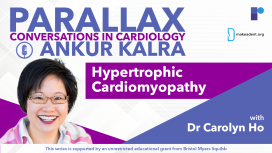
This series is supported by an unrestricted educational grant from Bristol Myers Squibb. Please see www.camzyosrems.com for important safety information.
This content is intended for US-based physicians.
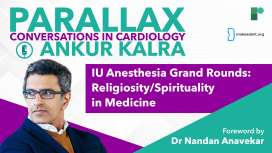
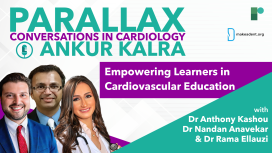


Parallax’s guest this week is Dr Eric David Adler, Medical director of heart transplant and mechanical circulatory support at UC San Diego Health.

How did Dr Gragossian receive her diagnosis? How does she feel about her new reality? What drives her? What is her message to our listeners?

Just after 9/11, Heval, the 18-year-old Syrian Kurdish refugee found a job as a dishwasher. At this point, he was the sole provider of his family. The pressure that comes from being poor did not leave him for many years. Today, he is firm believer in giving back to underserved communities by spreading awareness within the medical community. As he says, well-meaning people of privilege are sometimes afraid to act. What we need is more people to bridge the gap and find ways to help each other.

What drives Dr Nishtha Sodhi? What were the formative moments of Dr Sodhi’s career? What are the new frontiers of cardiology?






